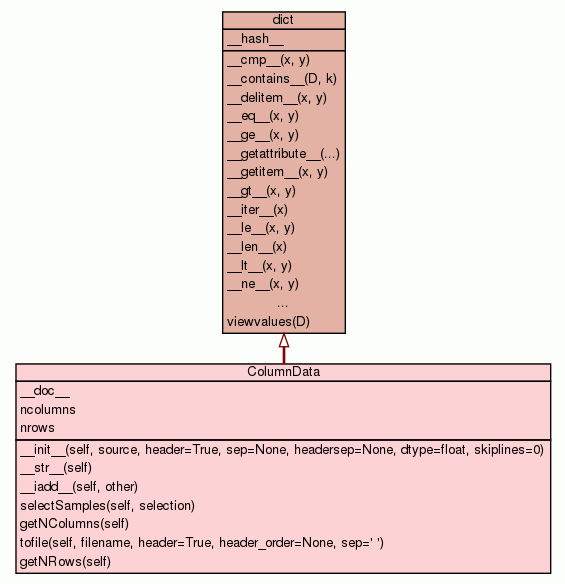
| Home | Trees | Indices | Help |
|
|---|
|
|

Read data that is stored in columns of text files.
All read data is available via a dictionary-like interface. If column headers are available, the column names serve as dictionary keys. If no header exists an articfical key is generated: str(number_of_column).
Splitting of text file lines is performed by the standard split() function
(which gets passed the sep argument as separator string) and each
element is converted into the desired datatype.
Because data is read into a dictionary no two columns can have the same name in the header! Each column is stored as a list in the dictionary.
|
|||
new empty dictionary |
|
||
|
|||
|
|||
|
|||
|
|||
|
|||
|
|||
|
|||
|
|||
|
|||
|
Inherited from Inherited from |
|||
|
|||
__doc__ = enhancedDocString('ColumnData', locals())
|
|||
ncolumns = property(fget= getNColumns)
|
|||
nrows = property(fget= getNRows)
|
|||
|
Inherited from |
|||
|
|||
|
Inherited from |
|||
|
|||
|
Return corresponding value if given key is known to current instance Is used for automatically added properties to the class.
|
|
|
| Home | Trees | Indices | Help |
|
|---|
| Generated by Epydoc 3.0.1 on Mon Apr 23 23:09:33 2012 | http://epydoc.sourceforge.net |